'People probably have what it takes, I explain what they have and how to use it' - Meet the Stress Master of Sheffield
and live on Freeview channel 276
Then maybe you should contact the Stress Master.
This is Ches Moulton, a man with a plan to help. He’s a therapist - psychotherapy, hypnotherapy, life therapy.
The 62-year-old runs a business called the Stress Master based in Sheffield city centre on Rockingham Lane. He’s also a familiar face at Regus in Meadowhall and Portland House on Ecclesall Road, where he’s run seminars.
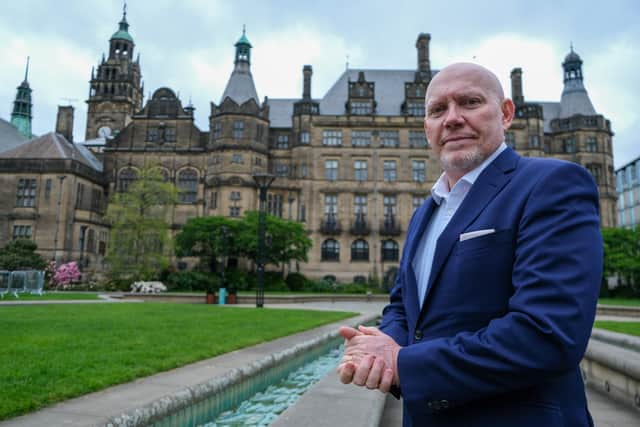

Advertisement
Hide AdAdvertisement
Hide AdChes became a certified stress management consultant after realising most people who approached him talked about stress.
“Stress was either the cause or the result of what people talked about,” he says.
Ches set up the business in 2019 and when lockdown hit a year later, everything changed.
“People were telling me things in an order I’d not heard before and in a way they had not discussed before.
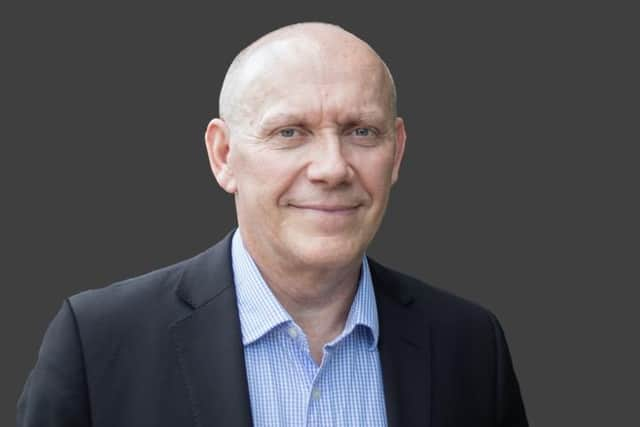

Advertisement
Hide AdAdvertisement
Hide Ad“There was a lot of curiosity about what was happening, but it went from curiosity to fear because this was a big unknown.
“There were three groups of people talking to me. The first was people on furlough, who didn’t know if they would be called back. The second was people still going into work or working from home who had health and safety worries.
“The third was the people who owned the companies whose fear was based around we’re getting through this but how long will it last?”
As lockdown eases, Ches says there is still much fear in society. “We might expect that. Stress spiked and it has stayed up.
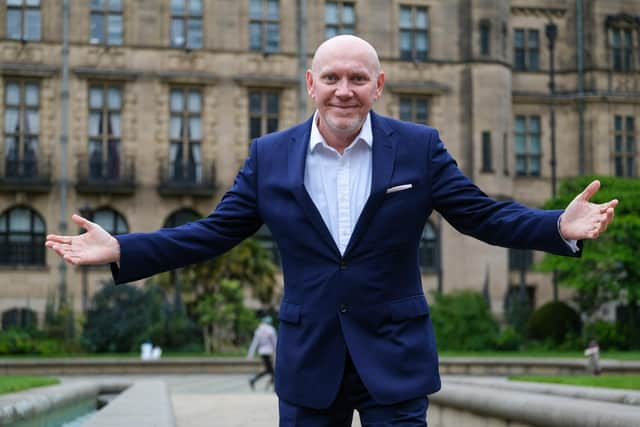

Advertisement
Hide AdAdvertisement
Hide Ad“The bad news is it is going to go up further because people are being told to stay at home who want to go into work and people are being called in who don’t want to go back. They are afraid to mix with people, afraid for the future.”
But Ches can help. In lockdown, he worked with a woman who ran a business which depended on having lots of people with her.
The business didn’t work virtually so she had to transfer her focus elsewhere, which gave her what Ches says is anticipatory stress. It is one of four negative stresses - the others are time, situation and encounter.
“She was scared of what she was anticipating and of her situation,” he says.
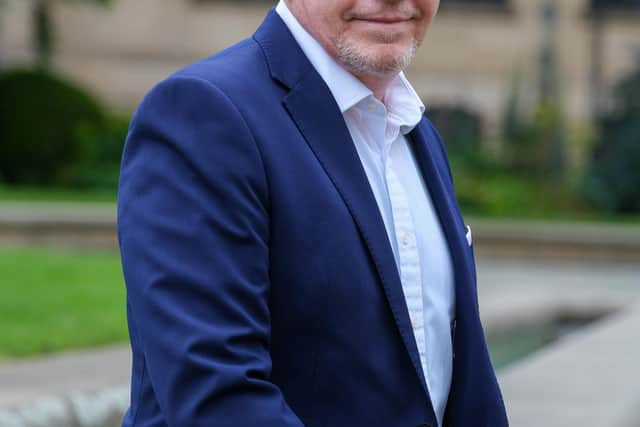

Advertisement
Hide AdAdvertisement
Hide AdThe classic response is to do nothing because you fear action will at best fail or at worst cause disaster. So what advice did he offer the businesswoman?
“I go out of my way not to give advice,” says Ches. “Most people have had so much bad advice they put up a wall if you try.”
What he does is explain how we feel, think and behave. How people and places relate to each other.
“I’ll explain you to yourself,” he says. “Once we have more confidence, control and understanding, we feel better, that’s what people want.
Advertisement
Hide AdAdvertisement
Hide Ad“People probably have what it takes, I explain what they have and how to use it.”
With help from Ches, the businesswoman regained confidence, was able to shift focus and her business is thriving again.
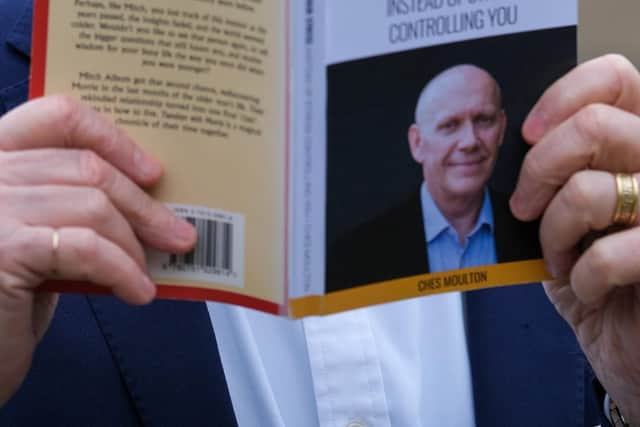

Lockdown certainly brought these mental health issues to the fore.
“People got a wake-up call that they couldn’t cope as well as they would have liked,” says Ches.
Advertisement
Hide AdAdvertisement
Hide Ad“Others coped really well, it was a huge learning curve. People had the opportunity to find out more about themselves, which might have been more than they anticipated or wanted.
“It’s what they do with that awareness and knowledge, how they line it up to come out of this experience that’s going to make a difference in their life.
“There will be winners and losers.”
That sounds forbidding but actually Ches is a pretty laid back chap who likes a beer and a joke.
Born in Canada, he spent the first 35 years of his life in Halifax, Nova Scotia. On leaving High School, he had no idea what he wanted to do.
Advertisement
Hide AdAdvertisement
Hide Ad“At 17 I did two exams - one for the Post Office, the other for the Police. I passed the Police, failed the mail, so they wouldn’t let me carry a mailbag, but I could carry a gun!
“But by the time the Police were ready for me, I had moved on.”
At 19, he became a volunteer probation officer, dealing with first offenders and trying to prevent them re-offending.
Evntually, he plumped for a career in PR and started studying at Mount St Vincent University in Halifax. He didn’t finish the course as he started to ask himself the big questions. “Who am I? Why do I act this way! How do I make changes?”
Advertisement
Hide AdAdvertisement
Hide AdChes attended therapy sessions and it was suggested he would make a good counsellor. He ran community evening sessions, using what he’d learnt as a probation officer.
But at 35 he wanted to see how the rest of the world lived and plumped for a move to Barbados, well who wouldn’t?
He spent 17 years there, the last 12 as a psychotherapist for Sir Anthony Bryan, who had owned radio stations but wanted to buy The Advocate, the island’s oldest newspaper. “I gave him the negotiating strategy to buy it.”
Ches spent his final years in Barbados commuting once a month to Wolverhampton where his wife was working.
Advertisement
Hide AdAdvertisement
Hide AdIt was costing too much so he moved permanently to England and when his wife was offered work in Sheffield in 2017, they moved here.
Ches, who lives in Thrybergh, Rotherham, is the author of an international bestseller Choice and Change, published in 2015. His second book, How to get control of your stress, was published last year.
Here’s his advice. “Sixteen thousand—that’s how many words we speak, on average, each day. So imagine how many unspoken word navigate their way through our minds.
“Many of them are not related to anything factual but are instead, evaluations and judgments related to our emotions—some positive and helpful…’I’ve worked hard and I’m certain I can ace this proposal’; ‘This issue is worth speaking up about’; ‘The new supplier seems flexible’, others negative and restrictive…’She’s purposely ignoring me’; ‘I’m going to make a fool of myself’; ‘I’m going to fail’.
Advertisement
Hide AdAdvertisement
Hide Ad“Prevailing wisdom says that difficult thoughts and feelings have no function in the workplace. That is wrong!
“All healthy human beings have an inner stream of thoughts and feelings that include criticism, doubt, and fear. That’s just our minds doing the job they were designed to do: trying to anticipate and solve problems and avoid pitfalls.
“What’s important is to learn how to manage our emotions in a way that keeps our stress levels from rising alongside our emotions, and also to curtail any negativity affecting our business and personal relationships.
Attempting to minimise or ignore thoughts and emotions serves only to amplify them. Effective leaders don’t buy into or try to suppress their inner experiences. They approach them in a mindful, values-driven, and productive way—developing emotional agility.
Advertisement
Hide AdAdvertisement
Hide AdIn our complex, fast-changing knowledge economy, the ability to manage one’s thoughts, feelings and behaviour is essential to success. Emotional agility helps alleviate stress, reduce errors, promote innovative, and improve job performance. What inner chatter do you have that does not serve your ambition to succeed?”
To contact Ches visit his website thestressmaster.com or call 0333 2026285.